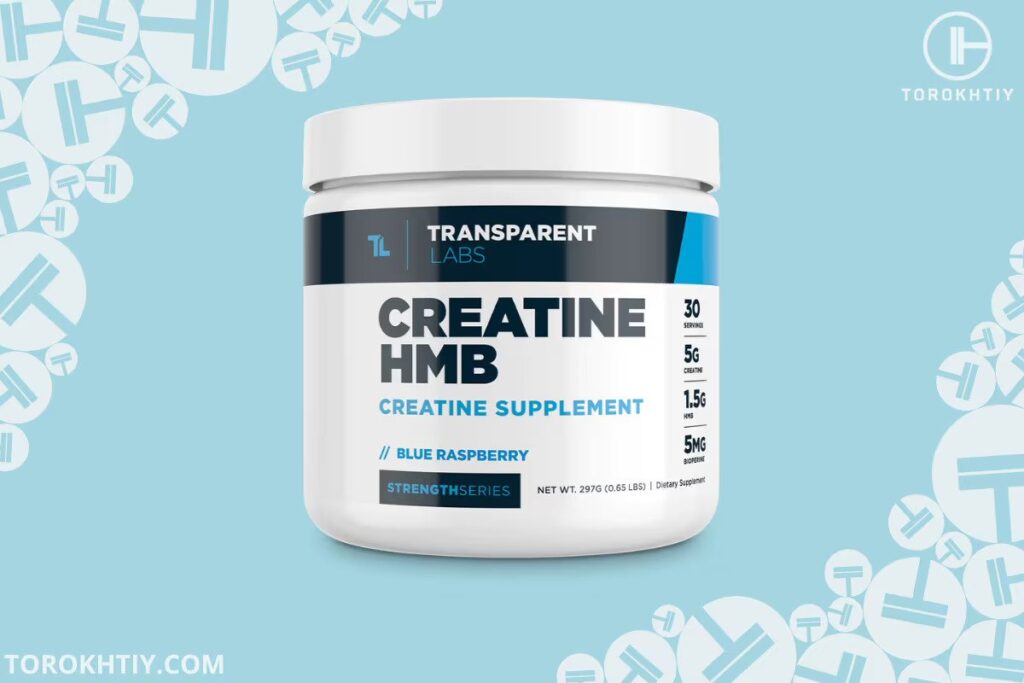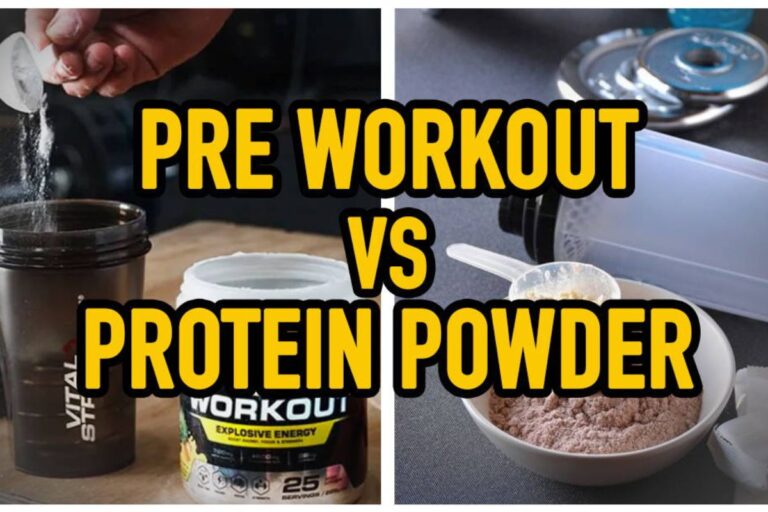How Long Does Creatine Stay In Your System?
If you’ve started taking creatine, you may be wondering how long it takes your body to process each serving, and how long the effects would last if you stopped taking it every day. So, how long does creatine stay in your system?
In this article, we’ll be answering all your questions about how long the effects of this popular supplement last, both after immediate use, as well as after months of taking it regularly.
How long does creatine stay in your system, both right after taking it, and after regular use? After a single dose, creatine plasma concentration peaks after about 2 hours, and remains elevated for around 4 hours total. After ceasing supplementation, creatine levels return to normal after 6-8 weeks.
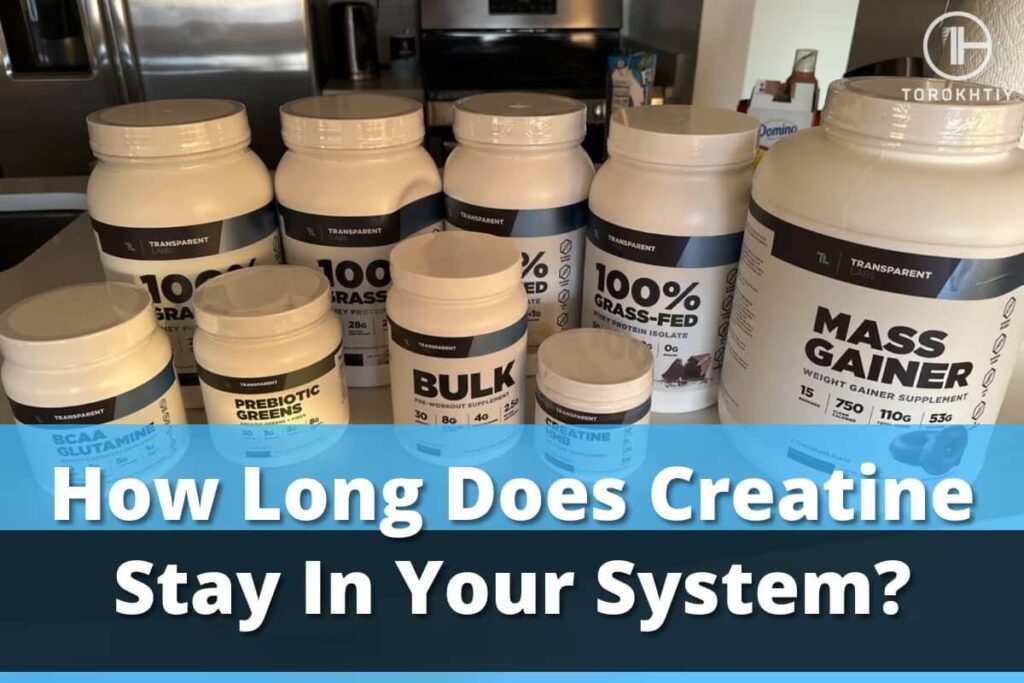
How Long Does Creatine Stay In Your System?
To answer this question effectively, it must be broken down into 2 parts. First, how long does creatine last in your system after taking a single dose? Next, how long will your creatine stores remain elevated once supplementation is completely ceased? Let’s find out!
1. After 1 Dose
When you take a single dose of creatine, it enters your bloodstream to be transported to skeletal muscle cells. It appears that creatine levels are at their peak in the blood around 2 hours after supplementation. These levels then remain elevated for another 2 hours, meaning blood plasma creatine levels return to normal after 4 hours total.
Therefore, the creatine half-life after reaching peak concentration in your blood will be around 1 hour, with levels returning to normal after another hour.
This tells us that it takes around 4 hours for our bodies to fully transport a serving of creatine to our muscle cells. However, most of this creatine will still be in our system as it is being stored by our muscle cells.
2. After Consistent Supplementation
The second part to this question is how long creatine levels will remain elevated once you completely stop supplementation. For reference, most people have creatine stores that stay ¾ full without supplementation.
Consistent supplementation of 3-5g a day will fully saturate these stores to 100% after 2-4 weeks. Once the body stops receiving this extra dose of creatine everyday, it will take around 6-8 weeks for creatine stores to return to their baseline levels pre-supplementation.
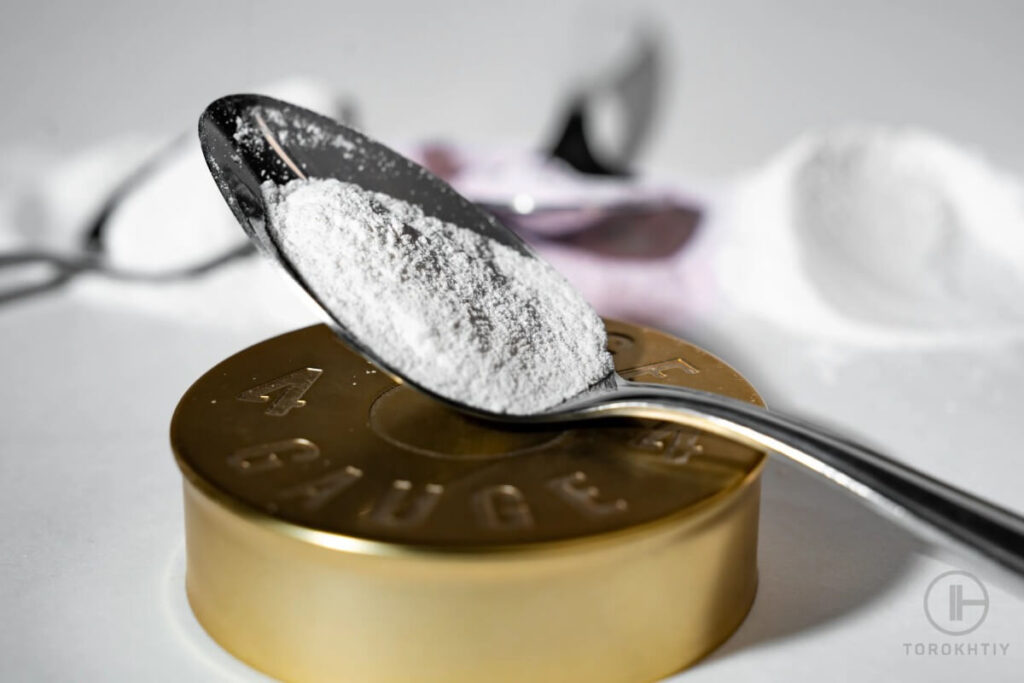
What Can Affect Creatine Retention in Skeletal Muscles?
When you take a single dose of creatine, there are several factors that may go into how much is actually retained in your muscles. Before getting into it, it’s worth noting that optimizing creatine retention is not nearly as important as simply taking the supplement regularly.
1. Length of Period Without Supplemental Creatine Use
Creatine retention is mostly affected by how much creatine is already being stored in your muscles. You’ll naturally retain more creatine when your muscles aren’t fully saturated, and retain less once they are.
If you haven’t taken creatine in a while, or if you’ve never taken creatine before, you’ll likely retain more of each dose in your muscles. If your muscles are fully saturated with creatine, there’s less room for additional creatine to be stored.
Our bodies store around 120g of creatine on average without supplementation, and we use around 2-3g of creatine a day. So, if you add 3-5g in through supplementation, more creatine will be stored than what’s being used up.
However, your body can only store so much creatine, likely around 160g for the average person. This means if you supplement with 3-5g of creatine every day, eventually your body will only be able to store enough to maintain fully saturated creatine levels, excreting the rest through urine.
Therefore, creatine retention after a single dose will likely be highest when you first start supplementation, and eventually level out to a slightly lower rate of retention once your muscles are fully saturated.
2. Regularity of Creatine Intake
Similar to if you’ve never supplemented before, if you take creatine irregularly, you will probably store more creatine per serving than if you’re taking it everyday. However, this is not a good thing because it means you’re not maintaining fully saturated creatine stores.
Ideally, you want creatine supplementation to keep your stores fully saturated in order to experience all the benefits of this supplement. This is why taking creatine consistently is so important.
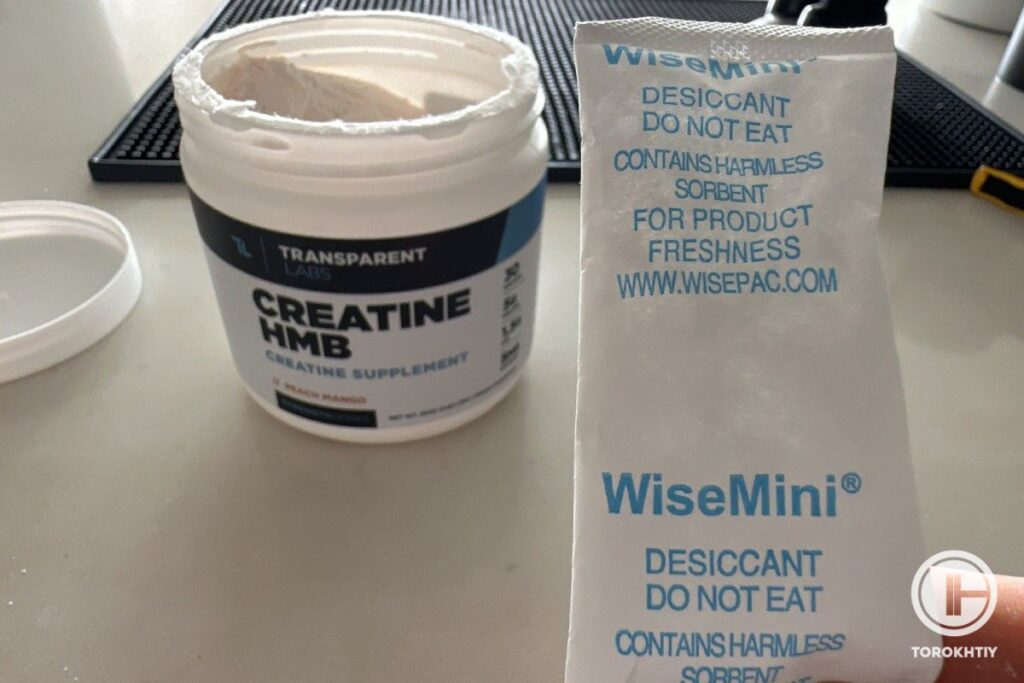
3. How Did You Take Creatine?
Finally, although a minor factor, what you ingest alongside creatine can affect how much is absorbed. This is because creatine intake is improved with higher insulin and sodium levels in the body. Sodium acts as a transporter for creatine, which is a process improved with higher insulin levels. This essentially means consuming creatine alongside carbs and protein will increase intake levels. It’s worth noting that this won’t make a significant difference in the effects of creatine as long as you’re taking the supplement consistently.
Why You Should Not Worry About How Long It Will Take Creatine to Reach Its Peak Concentration?
Maximizing creatine retention is not as important as taking the supplement consistently. While optimizing creatine retention may help speed up the time it takes for your muscles to become fully saturated, it would likely only speed up this process by a week or two at best. You will only experience the benefits of creatine when your muscles are fully saturated and you continue to take the supplement regularly. Ultimately, worrying about the speed it takes for your creatine stores to be saturated is pointless, especially if you plan on taking creatine indefinitely.
What Else Should You Know About Creatine?
The main thing you should know about creatine is that it does not have acute effects. It is a saturation based supplement, meaning its effects will only be noticed after several weeks of consistent supplementation. Because of this, optimizing creatine retention is not nearly as important as simply taking it consistently over a long time frame.
Also, once your muscles are fully saturated, you don’t have to worry about missing a dose here and there. Because it takes 6-8 weeks for creatine levels to return to baseline after consistent supplementation, missing a single dose every once in a while won’t immediately make you lose all your gains.
Best Creatine – Transparent Labs Creatine HMB
If you’re looking to start taking creatine, you may be wondering which supplement to take. If you’re looking for a high-quality, deluxe form of creatine, we recommend Transparent Labs’ Creatine HMB.
With 5g of creatine monohydrate per serving, you can be sure you’re getting an optimal dose in each scoop. If you’re new to creatine supplementation, taking this dose every day should fully saturate your muscles within 2-4 weeks. At this point you can continue taking the same dose to ensure your creatine stores remain fully saturated.
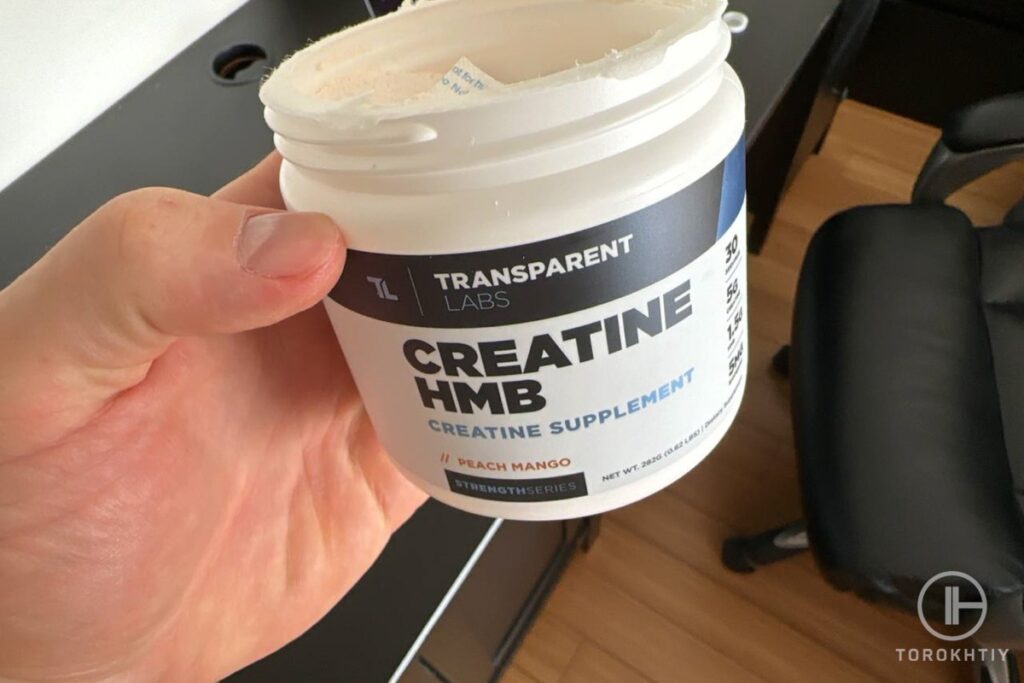
This product is unique because it contains several additional ingredients on top of creatine. One of which is HMB, which doesn’t appear to add much value to the supplement because of its negligible effects.
However, the inclusion of Vitamin D will likely have a solid impact on your training and overall health as it has been shown to improve muscular strength, bone health, and disease prevention. Each serving of Creatine HMB has 63% of your daily recommended Vitamin D.
While most creatine supplements only come in unflavored varieties, Transparent Labs stands out from the rest by offering this creatine in 11 flavors! Like all of Transparent Labs products, it’s also made with 100% natural ingredients.
Overall, this is a more deluxe creatine supplement than most others on the market. The price reflects this, being around $1.50 per serving. While you can certainly find cheaper options, you’ll be hard-pressed to find a higher quality supplement.
Although HMB likely won’t have a major impact, the inclusion of Vitamin D and the different flavor options still give this product great value for the money.
FAQ
How Long Does It Take for Creatine to Leave Your Body?
Once you stop taking creatine everyday, your levels will return to baseline after around 6-8 weeks. After a single serving, your body will transport all the creatine to your muscles that it can within around 4 hours. The creatine that can not be used is processed through the kidneys and excreted through the urine.
How Long Do Creatine’s Effects Last After Stopping Supplementation?
Creatine is most effective when your muscle stores are fully saturated with the supplement. If you stop taking creatine when your muscles are fully saturated, levels will return to baseline after 6-8 weeks.
This means you will likely experience a gradual, mild decline in body weight and high-intensity exercise performance over this 6-8 week period.
Does Creatine Affect Testosterone?
While there aren’t many studies available to support or deny this claim, it does not appear that creatine has any significant effect on testosterone levels.
How Long Does Creatine Stay In Your Urine?
Because your body is regularly using creatine, there will always be levels of creatinine (a breakdown product of creatine) in your urine. These levels will likely be elevated with regular supplementation. However, once supplementation is ceased, levels would return to normal around the same time creatine stores in the body return to normal, likely around 6-8 weeks.
Does Creatine Wear Off if You Stop Taking It?
The effects of creatine will only be noticeable if your muscle stores are fully saturated. With stores returning to a normal baseline after 6-8 weeks without supplementation, the effects of creatine will gradually wear off over this time as well.
How Long Does Creatine Last During a Workout?
There’s no reason to time your creatine before going to the gym. Because creatine doesn’t have any significant acute effects, as long as your creatine stores are saturated you will experience some benefits during your workout.
Conclusion
Overall, creatine is one of the most widely used sports supplements available. Unlike many other supplements, it does not have any acute effects, meaning it doesn’t really matter when you take it, or how long it takes for your body to process.
Because it is a saturation-based supplement, the length and consistency you take it is what’s truly important. Once your muscles are fully saturated, it would take around 6-8 weeks with no supplementation for creatine levels to return to their baseline.
If you’re interested in taking creatine, our recommendation for a high-quality supplement is Transparent Labs Creatine HMB.
Do you take creatine already, or are you considering trying this supplement out? Let us know in the comments below!
Also read:
- Should You Take Creatine Before or After a Workout
- How Long Does It Take for Creatine to Work
- How Much Water Should I Mix With Creatine
- How to Measure 5 Grams of Creatine
- Does Creatine Help With Fat Loss
- Is Creatine Safe for Teens
- Creatine Monohydrate vs Micronized
- Creatine Hcl vs Monohydrate
- Beta Alanine vs Creatine
- Does Creatine Cause Bloating
References:
- Darren G. Candow, Scott C. Forbes, Michael D. Roberts, Brian D. Roy, Jose Antonio, Abbie E. Smith-Ryan, Eric S. Rawson, Bruno Gualano, Hamilton Roschel, Creatine O’Clock: Does Timing of Ingestion Really Influence Muscle Mass and Performance? (Frontiers in Sports and Active Living, 20 May 2022), https://www.frontiersin.org/articles/10.3389/fspor.2022.893714/full.
- Creatine (Pressbooks, 2022), http://surl.li/kvqxs.
- Richard B. Kreider PhD, FACSM , Creatine: State of the Science at the Millennium (Exercise & Sport Nutrition Laboratory, 2000), http://surl.li/kvqxn
- Richard B Kreider, Douglas S Kalman, Jose Antonio, Tim N Ziegenfuss, Robert Wildman, Rick Collins, Darren G Candow, Susan M Kleiner, Anthony L Almada, Hector L Lopez, “International Society of Sports Nutrition position stand: safety and efficacy of creatine supplementation in exercise, sport, and medicine” Oxford Referencing Guide, https://oxfordguide.com/cite-oxford-style (accessed Jun 13, 2017), 10.1186/s12970-017-0173.
- G. R. Steenge, E. J. Simpson, and P. L. Greenhaff, “Protein- and carbohydrate-induced augmentation of whole body creatine retention in humans” American Physiological Society, https://journals.physiology.org/doi/full/10.1152/jappl.2000.89.3.1165 (accessed Sep 10, 2000).
- Javier Sanchez-Martinez, Alejandro Santos-Lozano, Antonio Garcia-Hermoso, Kabir P Sadarangani, Carlos Cristi-Montero, “Effects of beta-hydroxy-beta-methylbutyrate supplementation on strength and body composition in trained and competitive athletes: A meta-analysis of randomized controlled trials” Oxford Referencing Guide, https://oxfordguide.com/cite-oxford-style (accessed Jul 18, 2017), 21(7):727-735.
- “Vitamin D” The President and Fellows of Harvard College, https://www.hsph.harvard.edu/nutritionsource/vitamin-d/ (accessed 2023).
- Medical Encyclopedia: Creatinine – serum ( 2006), https://www.hsc.wvu.edu/media/5132/creatinine-summary.pdf
Why Trust Us?
With over 20 years in Olympic Weightlifting, our team does its best to provide the audience with ultimate support and meet the needs and requirements of advanced athletes and professional lifters, as well as people who strive to open new opportunities and develop their physical capabilities with us.
By trusting the recommendations of our certified experts in coaching, nutrition, dietology, and sports training programming, as well as scientific consultants, and physiotherapists, we provide you with thorough, well-considered, and scientifically proven content. All the information given in the articles concerning workout programming, separate exercises, and athletic performance, in general, is based on verified data. We ensure that you can rely on our professionals’ pieces of advice and recommendations that can be treated as personalized ones which will benefit you and fully meet your needs.
The product testing process is described in more detail here
Author: Oleksandr Maksymenko
Certified Sports Nutritionist,
MSc Sports Dietetics
Specializing in: Weight management, Fitness / Sports nutrition
Oleksandr is a professional fitness nutritionist certified by the Fitness Professional Association (FPA). He follows the principles of evidence-based dietetics and fosters a healthy relationship with food in his clients, ensuring there are no strict prohibitions on their favorite foods or frequent lapses. His primary goal is not only to achieve results for you but also to sustain them over the long term, all while enjoying tasty and delicious food.

